WITNESS RADIO MILESTONES
This Fraud Must Stop’: How a Green Norwegian Company is Using Climate Change to Exploit Ugandan Villages
Published
7 years agoon
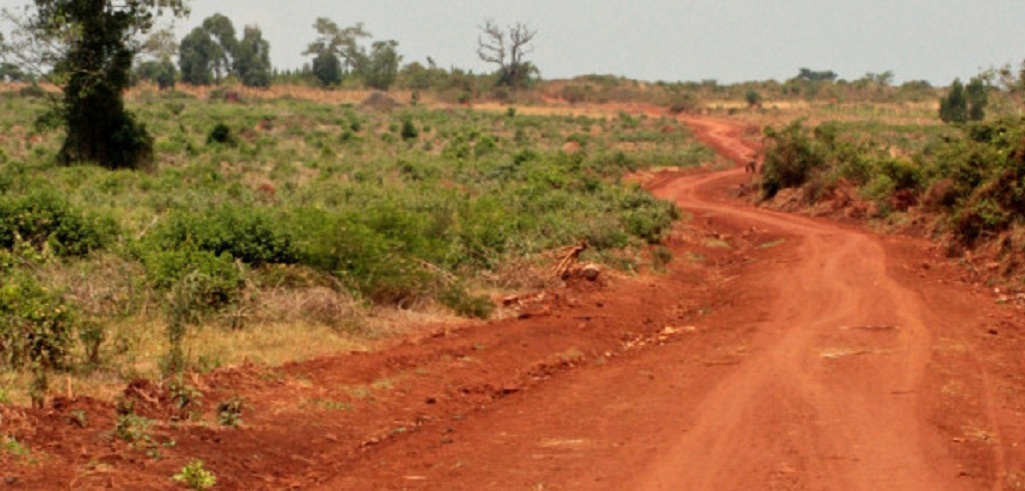
When it comes to our global climate, few would argue that growing more trees is a bad thing. After all, forests naturally soak up greenhouse gas emissions from automobiles and other industrial functions, pulling harmful carbon dioxide from the atmosphere and recycling it to optimize Earth’s capacity to sustain life. Consistently, a decade ago, the Norway-based company Green Resources began planting forests on 2,670 hectares (6600 acres) of land in the government-owned Kachung Central Forest Reserve in northern Uganda under an international ‘carbon credit’ program where governments, industry or private individuals can compensate for the emissions they generate.
Here’s how it works. Companies like Green Resources acquire grassland and savanna in African nations and grow forests by selling carbon credits to entities like the Swedish Energy Agency looking to offset their own carbon pollution. In this fashion, the total emissions to our global atmosphere can be kept in check as countries like Sweden balance their own harmful industrial practices with proactive, healthier practices elsewhere.
Unfortunately, for struggling villagers who have long lived within the Kachung reserve, this ostensibly well-intentioned environmental effort has greatly damaged their own environment. Seventeen villages have been impacted as residents have been forced from their land, some violently, and their lack of access has restricted their ability to grow food, graze animals and engage in cultural practices. Local workers have been mistreated and underpaid. And the chemicals used by Green Resources in their forestry process has made the land more toxic and less able to sustain the small-scale subsistence farming and livestock herding these villagers depend on.
As a result of these inequitable practices — also referred to as “carbon violence” — and critical international attention from media and NGOs (non-governmental organizations), the Swedish Energy Agency halted payments to Green Resources in November 2015 and informed the company to recognize human rights and clean up its practices.
“Villagers were deprived of vital resources and experienced threats and violence, and there is a lack of clarity regarding ownership in the reserve,” an agency spokesperson told Development Today at the time. The extraordinary suspension of payments on this $4.1 million carbon deal running from 2012 to 2032 would only be lifted in 2018, the Swedish agency said, if Green Resources addressed concerns raised by local communities. They included initiating an effective communications and complaints process, enabling cattle grazing, producing a socioeconomic analysis and development plan, repairing local wells, and respecting local land rights given the villagers, despite the land’s federal status, have a legal claim based on longevity and common law.
“When Swedish Energy Agency suspended payments two years ago, it only acted after being publicly exposed in the media and growing pressure from NGOs,” said Frédéric Mousseau, policy director for the Oakland Institute, an independent think tank on international policy. “Prior to this exposure, the agency had decided to ignore the situation and the impact of the project on the people.”
Mousseau, whose organization issued the recent report, “Carbon Colonialism,” and works with on-the-ground researchers, monitors and villagers in Kachung, has seen some change since the suspension, but not for the better. “Things are worsening year after year for the people of Kachung, who receive almost no benefits from the plantation despite Green Resources’ claims of job opportunities and water wells,” revealed Mousseau. “Green Resources has failed to address the main problems faced by the local villagers such as hunger and loss of livelihood, a result of the company’s plantation on the land that was used by them for farming, grazing, gathering of firewood, medicinal plants, and other uses.”
In an attempt to show improvement and compliance, Green Resources commissioned an audit which was released in March 2017. While the company was labeled “noncompliant” on issues of food security for local communities, it was deemed “fully compliant” in addressing land issues and the associated displacement of residents. Skeptical of an audit ordered by the company itself, the Oakland Institute relied upon its own investigation.
“Our report reveals the bias of the auditors who have chosen to overlook the many flaws of the project and the continued failure of Green Resources in addressing the grievances of the communities,” said Mousseau, noting how the company places the full onus of the land evictions on the Uganda government despite the ongoing and disputed nature of the land claims. “The auditors allow Green Resources to shirk its own responsibilities, with outcomes that violate people’s basic human rights, undermine their livelihoods, and threaten their very survival.”
While a number of international entities have interpreted Ugandan pre-constitutional law to acknowledge “bona fide” land rights for local villagers, Green Resources has a different interpretation. “The Land Act states that ‘A person who, before the coming into force of the Constitution had occupied and utilized or developed any land unchallenged by the registered owner or agent of the registered owner for twelve years or more is a lawful occupant categorized as bona fide occupant,” wrote the company in an October 2016 statement. “This statement would fit only those who had been in the Forest Reserve since 1983. However, the former Forest Department had been frequently issuing eviction notices to “encroachers” and “boundaries were being re-opened which showed that the encroachers were not lawful occupants. These actions constitute a ‘challenge’ to the occupants, and as such, under Ugandan law, they do not have the ‘Bona Fide’ land rights claimed.”
The resolution to the land dispute, like the legality itself, remains unclear. Nonetheless, in its report, the Oakland Institute clearly outlined what needs to happen next in Kachung. Among its numerous recommendations is the cancellation of the carbon credit deal with Green Resources by the Swedish Energy Agency, the suspension of funding to Green Resources by its international financiers, and the development of higher international standards for “the recognition of common and customary land rights than just the legality of contracts and land leases.”
“We are calling on the Swedish Energy Agency to face the reality and listen to the villagers impacted by the tree plantation,” stressed Mousseau, noting, “It should be obvious to the agency that it should assume its responsibility, suspend any further payments and immediately cancel the deal with Green Resources.”
That said, Mousseau clarified that what’s ultimately at stake is much larger than the inequitable developments in the Kachung region of northern Uganda.
“Our report is called ‘Carbon Colonialism’ because it highlights an issue much broader than just the malpractices of an individual Norwegian company in Africa,” clarified Mousseau. “It is about rich nations and their international financial institutions developing a system that exploit the natural resources of African countries and impoverish local people under the guise of sustainable development and the fight against climate change.”
Mousseau added, “This fraud must stop.”
Related posts:

 Two EU member states, Norway named for aiding land eviction for carbon credit trading
Two EU member states, Norway named for aiding land eviction for carbon credit trading
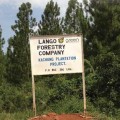 Sweden postpones carbon payment to Uganda tree farm where locals have been evicted
Sweden postpones carbon payment to Uganda tree farm where locals have been evicted
 Offsets don’t stop climate change.
Offsets don’t stop climate change.
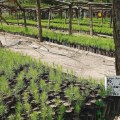 A Norwegian company is committing carbon violence in Uganda – Report
A Norwegian company is committing carbon violence in Uganda – Report
You may like
-


Private prosecution: Army General, police commander, presidential representative and others to be charged with over seven offenses committed while illegally evicting locals to give way to EACOP.
-


Six cattlemen opposed to the Tilenga oil project-related forced land eviction have been granted bail but will remain in prison…
-
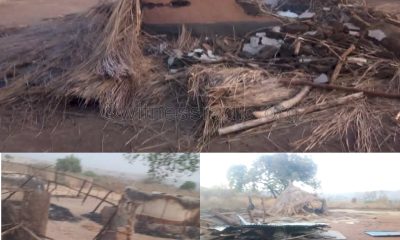

The district security committee continues to defy gov’t’s directive to return locals to their land 48 days later.
-
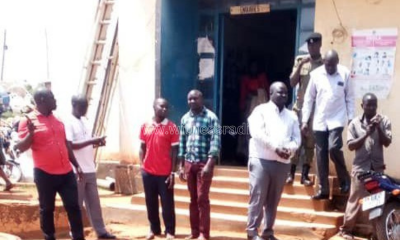

State House Anti-Corruption Unit nets a surveyor implicated in Mubende district land-grabs
-
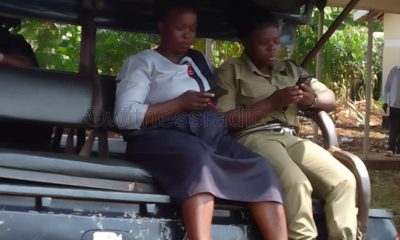

Kiboga district senior lands officer is arrested and detained over land fraud.
-


Community land rights defenders that have been on trial since 2020; are set to return to court this January.
MEDIA FOR CHANGE NETWORK
Uganda moves toward a Bamboo Policy to boost environmental conservation and green growth.
Published
2 weeks agoon
January 21, 2026
By Witness Radio team.
Uganda’s move to develop a national bamboo policy aims to boost environmental conservation and create green jobs, addressing the country’s urgent unemployment issues among the working class.
Bamboo is a critical tool in fighting climate change due to its rapid growth, high carbon sequestration capacity, and ability to produce 35% more oxygen than equivalent trees. As a fast-growing, renewable resource, it restores degraded land, provides sustainable materials that replace emission-intensive products like concrete, and offers a resilient, low-carbon bioenergy source.
Bamboo’s potential is outlined in the existing National Bamboo Strategy. Still, stakeholders stress that a formal policy involving entrepreneurs, farmers, and processors is essential to remove regulatory uncertainty and foster sector growth.
“The strategy is a good document, but it was developed largely through desk research. It did not fully involve entrepreneurs, farmers, and processors who are already working in the bamboo industry,” said Sjaak de Blois, chairman of Bamboo Uganda, encouraging stakeholders to see their role as vital.
The bamboo policy is currently at an early consultative stage, with no draft yet submitted to the cabinet or parliament. Recent consultations brought together representatives from eight government ministries, private-sector bamboo actors, and development partners to begin aligning the strategy with practical regulatory needs.
“What we have now is the starting point,” De Blois mentioned. “The next step is to take the strategy and make it more practical, more market-driven, and more Ugandan. The next step is to move from having a plan to adopting a policy.
Bamboo currently falls under several regulatory frameworks, with no single authority overseeing the sector. The policy push is being driven in part by Bamboo Uganda, a membership-based organization bringing together bamboo farmers and processors, among others. The organization aims to play a coordinating role similar to that historically played by the Uganda Coffee Development Authority in the coffee sector.
“If you want to make a sector meaningful for a country, you need coordination. Coffee became what it is because of an institution that aligned farmers, traders, exporters, and regulators. Bamboo needs the same kind of coordination.” He said.
The policy process is supported by the Belgian development agency, which is funding consultations and facilitating dialogue between the government and the private sector.
Industry players say the absence of clear regulations has constrained investment despite growing demand.
“At the moment, bamboo is everywhere and nowhere at the same time. As a farmer, you talk to forestry, as a charcoal producer, you talk to energy, as a builder, you talk to works. There is no single framework that enables the industry to function.” De Blois added.
Supporters of the policy argue that bamboo could play a significant role in environmental conservation. Bamboo grows rapidly, regenerates after harvesting, and can be harvested annually for decades, reducing pressure on natural forests.
According to Global Forest Watch (GFW), Uganda lost 1.2 million hectares of tree cover between 2001 and 2024, representing a 15% decline from the 2000 baseline. Bamboo has been identified as a key species for restoration.
“One acre of bamboo that is harvested sustainably can prevent the destruction of hundreds of acres of natural forest,” De Blois said. “If we get this right, bamboo can help reverse deforestation rather than contribute to it.”
Ms. Susan Kaikara, from the Ministry of Water and Environment, emphasized bamboo’s potential to drive Uganda’s green-growth agenda.
“Establishing a coherent national policy framework will strengthen coordination, inspire investment, and unlock bamboo’s full potential as a pillar of Uganda’s green economy,” she said.
Uganda’s charcoal market alone is estimated to be worth hundreds of millions of dollars annually, much of it supplied through unsustainable wood harvesting. Industry actors say certified bamboo charcoal plantations could offer a cleaner alternative.
“If they allow us to certify bamboo charcoal plantations, then we can get a trade license to compete or to work together with the existing market. We will reverse deforestation. We would enter an industry of about 500,000 hectares, creating smart, green jobs. We can digitalize them to make them attractive through bamboo agroforestry. So again, those things need a policy.” He adds.
Bamboo is also viewed as a climate-friendly crop due to its high capacity for carbon sequestration. Its rapid growth enables it to absorb large amounts of carbon dioxide, while its extensive root system improves soil structure and increases long-term carbon storage.
“When you look at carbon sequestration, bamboo offers several advantages. Residues from harvested bamboo can be converted into biochar, locking carbon into the soil for long periods. When you also see the sequestration per acre compared to many other trees, it is five or six times higher. So, we sequester a lot,” De Blois said
Stakeholders say that if the policy process progresses as planned, bamboo could emerge as one of Uganda’s key green growth sectors within the next decade.
“Policy making takes time. But what is important is that we have started the conversation with all the right ministries in the room. From here, it is about taking steady, practical steps.” He concluded.
Related posts:

 As Uganda awaits the Energy Efficiency and Conservation law, plans to develop a five-year plan are underway.
As Uganda awaits the Energy Efficiency and Conservation law, plans to develop a five-year plan are underway.
 REC25 & EXPO Ends with a call on Uganda to balance conservation and livelihood
REC25 & EXPO Ends with a call on Uganda to balance conservation and livelihood
 Africa’s growth lies with smallholder farmers
Africa’s growth lies with smallholder farmers
 Green Resources’ forestry projects are negatively impacting on local communities – donor
Green Resources’ forestry projects are negatively impacting on local communities – donor
WITNESS RADIO MILESTONES
A Global Report reveals that Development Banks’ Accountability Systems are failing communities.
Published
2 months agoon
December 4, 2025
By Witness Radio team.
For decades, development projects have been funded to address some of the World’s most pressing problems, including poverty, wildlife conservation, and climate change. However, what unfolds on the ground is sometimes the opposite of development. Instead of benefits, these projects have often harmed the very people they are supposed to support.
The effort to address such harm has led to the establishment of Independent Accountability Mechanisms (IAMs) by various development banks. Yet, communities affected by these projects often face betrayal by national court systems, leaving them feeling overlooked and vulnerable, emotions that underscore the urgent need for effective justice.
According to experts in development financing, since the early 1990s, development banks have sought to address and mitigate harm through IAMs—non-judicial grievance mechanisms that provide a direct avenue for impacted communities to raise concerns, engage with project implementers, and obtain remedies for the harm they have experienced.
The study, conducted by Accountability Counsel and titled Accountability in Action or Inaction? An Empirical Study of Remedy Delivery in Independent Accountability Mechanisms shows that while IAMs exist, their relevance has fallen short, underscoring the urgent need for reform to restore community trust and hope.
In compiling the report, researchers reviewed 2,270 complaints across 16 IAMs and conducted 45 interviews covering 25 cases globally.
The report reveals a persistent gap between the promise of remedies and their realization, highlighting that only 15% of closed complaints led to commitments, and just 10% achieved full completion, underscoring the urgent need for effective remedies for communities.
The findings highlight ongoing challenges, including inadequate implementation, limited monitoring, and persistent power imbalances, which continue to block communities from accessing meaningful remedies and demand immediate reform.
“The consequences of these institutional gaps are severe. As these cases show, institutional silence can exacerbate risk, while meaningful intervention can help de-escalate it.” The Report adds.
Uganda is among the countries where communities have sought justice using these accountability mechanisms. Between 2006 and 2010, communities in one of the districts of Uganda were brutally evicted by the UK-based Company, which was growing trees in the area.
The company was formerly an investee of the Agri-Vie Agribusiness Fund, a private equity fund supported by the International Finance Corporation (IFC), the private sector arm of the World Bank Group. The community filed a Complaint with the IFC’s accountability mechanism, the Compliance Advisor Ombudsman (CAO).
“We complained to this body in 2011, hoping for justice, but over 15 years later our people are still struggling, living miserably, some without homes,” a community land and environmental defender told the Witness Radio team.
According to the affected residents, the CAO process did not lead to success or meaningful compensation, as they had hoped.
Between 2013 and 2014, the communities, with support from the CAO, signed a final agreement with the Company to address the harm. Among other commitments, this included resettlement of the affected communities.
In its 28-page report published in 2015 titled: A Story of Community-Company Dispute Resolution in Uganda, the CAO wrote,” With the agreements concluded, implementation is gathering pace. As agreed, the company has begun extending development assistance to both cooperatives, and the process of restoring and enhancing livelihoods has commenced.
The first step taken by both cooperatives was to acquire land. In late 2013, the Mubende Cooperative bought 500 acres of ‘fertile agricultural land’ in the Mubende district. Their vision was to allocate a certain percentage of the land for resettlement, with the remainder utilized for farming projects.
Reports from the ground indicate that communities remain dissatisfied with the process, claiming it failed to address their concerns fully and highlighting the urgent need for more effective remedy systems.
“When you say that people are well, it is really a total lie. Many people were never compensated or resettled. Even those who got a portion of land say they have never seen a fertile land—I have never seen it, because people are living or cultivating on rocky, infertile lands,” the defender further revealed.
The struggle faced by the Ugandan community is not unique. Their experience mirrors what the Accountability Counsel report identifies worldwide. Despite registering more than 2000 complaints by communities harmed by bank-financed projects globally, there has been no comprehensive system-wide analysis of whether and how often these mechanisms deliver meaningful remedies, defined as tangible, material outcomes that repair harm and improve lives.
In addition to the slow success of such IAMs, the report notes that, across interviews covering 25 complaints, 84% referenced retaliation, violence, or threats of violence-an alarming indicator of the risks faced by communities seeking justice, demanding immediate attention and action.
“Government officials and company representatives were frequently implicated in efforts to suppress dissent. This not only reduces the likelihood of achieving a substantial remedy, but also suppresses the willingness of community members to speak honestly and openly about Complaint outcomes.” The report further adds,
Further, it reveals that communities described a range of retaliatory tactics, including physical clashes, arrests, detentions, fatalities, intimidation and harassment, death threats, and anonymous warning letters, among others.
“Remedy must be reimagined not as a peripheral concern but as a core responsibility of development institutions. It must be adequately resourced, independently monitored, and centered around the needs and voices of affected people,” the report adds.
The report recommends that development banks and IAMs establish a Remedy Framework with clear standards to ensure remedies are timely, adequate, and community-centered, and to encourage stakeholders to prioritize systemic reform for better justice outcomes.
The report also urges development banks and their accountability mechanisms to make remedies a foundational element of responsible finance. Adopting institutional frameworks that prioritize redress, empowering IAMs to oversee and enforce commitments, and incorporating the outcomes of IAM processes into project evaluations and institutional learning.
Related posts:

 Banks have given almost $7tn to fossil fuel firms since Paris deal, report reveals
Banks have given almost $7tn to fossil fuel firms since Paris deal, report reveals
 Opinion: USAID needs an independent accountability office to improve development outcomes
Opinion: USAID needs an independent accountability office to improve development outcomes
 Communities Under Siege: New Report Reveals World Bank Failures in Safeguard Compliance and Human Rights Oversight in Tanzania
Communities Under Siege: New Report Reveals World Bank Failures in Safeguard Compliance and Human Rights Oversight in Tanzania
 Oxfam Report 2011: When Indigenous communities named Rwanda nationals by investor to run away from corporate accountability
Oxfam Report 2011: When Indigenous communities named Rwanda nationals by investor to run away from corporate accountability
MEDIA FOR CHANGE NETWORK
Young activists fight to be heard as officials push forward on devastating project: ‘It is corporate greed’
Published
5 months agoon
August 27, 2025
“We refuse to inherit a damaged planet and devastated communities.”
Youth climate activists in Uganda protesting the East African Crude Oil Pipeline, or EACOP, are frustrated with the government’s response to their demonstration as the years-long project moves forward.
According to the country’s Daily Monitor, youth activists organized with End Fossil Occupy Uganda took to the streets of Kampala in early August to protest EACOP. The pipeline, under construction since about 2017 and now 62 percent complete, is set to transport crude oil from Uganda’s Tilenga and Kingfisher fields through Tanzania to the Indian Ocean port of Tanga by 2026.
Activists noted the devastating toll, with group spokesperson Felix Musinguzi saying that already around 13,000 people “have lost their land with unfair compensation” and estimating that around 90,000 more in Uganda and Tanzania could be affected. End Fossil Occupy Uganda has also warned of risks to vital water sources, including Lake Victoria, which it says 40 million people rely on.
The group has been calling on financial institutions to withdraw funding for the project. Following a demonstration at Stanbic Bank earlier in the month, 12 activists were arrested, according to the Daily Monitor.
Some protesters were seen holding signs reading “Every loan to big oil is a debt to our children” and “It’s not economic development; it is corporate greed.”
Meanwhile, the regional newspaper says the government has described the activist efforts as driven by foreign actors who mean to subvert economic progress.
EACOP’s site notes that its shareholders include French multinational TotalEnergies — owning 62 percent of the company’s shares — Uganda National Oil Company, Tanzania Petroleum Development Corporation, and China National Offshore Oil Corporation.
The wave of young people taking action against EACOP could be seen as a sign of growing public frustration over infrastructural projects that promise economic gain while bringing harm to local communities and ecosystems. Activists say residents face costly threats from pipeline development, such as forced displacement and the loss of livelihoods.
Environmental hazards to Lake Victoria could also disrupt water supplies and food systems, bringing the potential for both financial and health impacts. Just 10 years ago, an oil spill in Kenya caused a humanitarian crisis. The Kenya Pipeline Company reportedly attributed the spill to pipeline corrosion, which led to contamination of the Thange River and severe illness.
The EACOP project has already locked the region into close to a decade of development, and concerns about the pipeline and continued investments in carbon-intensive systems go back just as long. Youth activists, as well as concerned citizens of all ages, say efforts to move toward climate resilience can’t wait. “As young people, we refuse to inherit a damaged planet and devastated communities,” Musinguzi said, per the Monitor.
Source: The Cool Down
Related posts:

 Put people above profits – Climate Activists urge Total to defund EACOP
Put people above profits – Climate Activists urge Total to defund EACOP
 EACOP: The number of activists arrested for opposing the project is already soaring in just a few months of 2025
EACOP: The number of activists arrested for opposing the project is already soaring in just a few months of 2025
 EACOP activism under Siege: Activists are reportedly criminalized for opposing oil pipeline project in Uganda.
EACOP activism under Siege: Activists are reportedly criminalized for opposing oil pipeline project in Uganda.
 The East African Court of Justice fixes the ruling date for a petition challenging the EACOP project.
The East African Court of Justice fixes the ruling date for a petition challenging the EACOP project.

Why govt is launching a comprehensive digital land registry

Witness Radio and Seed Savers Network are partnering to produce radio content to save indigenous seeds in Africa.

Evicted from their land to host Refugees: A case of Uganda’s Kyangwali refugee settlement expansion, which left host communities landless.

Women environmental rights defenders in Africa are at the most significant risk of threats and attacks – ALLIED New report

Will Uganda’s next government break the land-grabbing cycle?

Women environmental rights defenders in Africa are at the most significant risk of threats and attacks – ALLIED New report

Swedish pension fund drops TotalEnergies amid rising EACOP risks

Land tenure security as an electoral issue: Museveni warns Kayunga land grabbers, reaffirms protection of sitting tenants.

Innovative Finance from Canada projects positive impact on local communities.
Over 5000 Indigenous Communities evicted in Kiryandongo District
Petition To Land Inquiry Commission Over Human Rights In Kiryandongo District
Invisible victims of Uganda Land Grabs
Resource Center
- Land And Environment Rights In Uganda Experiences From Karamoja And Mid Western Sub Regions
- REPARATORY AND CLIMATE JUSTICE MUST BE AT THE CORE OF COP30, SAY GLOBAL LEADERS AND MOVEMENTS
- LAND GRABS AT GUNPOINT REPORT IN KIRYANDONGO DISTRICT
- THOSE OIL LIARS! THEY DESTROYED MY BUSINESS!
- RESEARCH BRIEF -TOURISM POTENTIAL OF GREATER MASAKA -MARCH 2025
- The Mouila Declaration of the Informal Alliance against the Expansion of Industrial Monocultures
- FORCED LAND EVICTIONS IN UGANDA TRENDS RIGHTS OF DEFENDERS IMPACT AND CALL FOR ACTION
- 12 KEY DEMANDS FROM CSOS TO WORLD LEADERS AT THE OPENING OF COP16 IN SAUDI ARABIA
Legal Framework
READ BY CATEGORY
Newsletter
Trending
-

 MEDIA FOR CHANGE NETWORK1 week ago
MEDIA FOR CHANGE NETWORK1 week agoWomen environmental rights defenders in Africa are at the most significant risk of threats and attacks – ALLIED New report
-

 MEDIA FOR CHANGE NETWORK2 weeks ago
MEDIA FOR CHANGE NETWORK2 weeks agoUganda moves toward a Bamboo Policy to boost environmental conservation and green growth.
-

 FARM NEWS1 week ago
FARM NEWS1 week ago200 farmers demonstrate at parliament, worried about new seed monopoly
-

 MEDIA FOR CHANGE NETWORK4 days ago
MEDIA FOR CHANGE NETWORK4 days agoEvicted from their land to host Refugees: A case of Uganda’s Kyangwali refugee settlement expansion, which left host communities landless.
-

 MEDIA FOR CHANGE NETWORK4 days ago
MEDIA FOR CHANGE NETWORK4 days agoWitness Radio and Seed Savers Network are partnering to produce radio content to save indigenous seeds in Africa.
-

 MEDIA FOR CHANGE NETWORK1 day ago
MEDIA FOR CHANGE NETWORK1 day agoWhy govt is launching a comprehensive digital land registry
